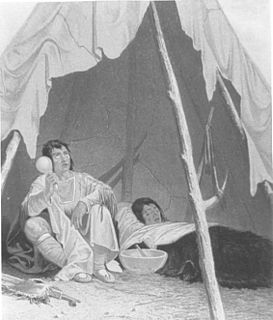 W
WChristians have held diverse views towards violence and non-violence through time. Currently and historically there have been four views and practices within Christianity toward violence and war: non-resistance, Christian pacifism, just war, and preventive war. The early church in the Roman empire adopted a nonviolent stance when it came to war since imitating Jesus's sacrificial life was preferable. The concept of "just war", whereby limited uses of war were considered acceptable originated with earlier non-Christian Roman and Greek thinkers such as Cicero and Plato. This theory was adapted later by Christian thinkers such as St Augustine, who like other Christians, borrowed much of the justification from Roman writers like Cicero and Roman Law. Even though "Just War" concept was widely accepted early on, warfare was not regarded as a virtuous activity and expressing concern for the salvation of those who killed enemies in battle, regardless of the cause for which they fought, was common. Concepts such as "Holy war", whereby fighting itself might be considered a penitential and spiritually meritorious act, did not emerge before the 11th century.
 W
WBeeldenstorm in Dutch, and Bildersturm in German are terms used for outbreaks of destruction of religious images that occurred in Europe in the 16th century, known in English as the Great Iconoclasm or Iconoclastic Fury. During these spates of iconoclasm, Catholic art and many forms of church fittings and decoration were destroyed in unofficial or mob actions by Calvinist Protestant crowds as part of the Protestant Reformation. Most of the destruction was of art in churches and public places.
 W
WThe Hebrew Bible and the New Testament contain narratives, poetry, and instruction describing, encouraging, commanding, condemning, rewarding, punishing and regulating violent actions by God, individuals, groups, governments, and nation-states. Among the violent acts included are war, human sacrifice, animal sacrifice, murder, rape, genocide, and criminal punishment. The texts have a history of interpretation within the Abrahamic religions and Western culture that includes both justification and opposition to acts of violence.
 W
WThe history of Christian thought has included concepts of both inclusivity and exclusivity from its beginnings, that have been understood and applied differently in different ages, and have led to practices of both persecution and toleration. Early Christian thought established Christian identity, defined heresy, separated itself from polytheism and Judaism and invented supersessionism. In the centuries after Christianity became the official religion of Rome, some scholars say Christianity became a persecuting religion, while others say the change to Christian leadership did not cause a persecution of pagans.
 W
WThe just war theory is a doctrine, also referred to as a tradition, of military ethics which is studied by military leaders, theologians, ethicists and policy makers. The purpose of the doctrine is to ensure that a war is morally justifiable through a series of criteria, all of which must be met for a war to be considered just. The criteria are split into two groups: "right to go to war" and "right conduct in war" . The first group of criteria concerns the morality of going to war, and the second group of criteria concerns the moral conduct within war. There have been calls for the inclusion of a third category of just war theory dealing with the morality of post-war settlement and reconstruction. The just war theory postulates the belief that war, while it is terrible but less so with the right conduct, is not always the worst option. Important responsibilities, undesirable outcomes, or preventable atrocities may justify war. Opponents of the just war theory may either be inclined to a stricter pacifist standard or they may be inclined toward a more permissive nationalist standard. In many cases, philosophers state that individuals do not need to be plagued by a guilty conscience if they are required to fight. A few philosophers ennoble the virtues of the soldier while they also declare their apprehensions for war itself. A few, such as Rousseau, argue for insurrection against oppressive rule.
 W
WThe Land letter was a letter sent to U.S. President George W. Bush by five evangelical Christian leaders on October 3, 2002, outlining their support for a just war pre-emptive invasion of Iraq. As its foundation for support, the letter refers to the "criteria of just war theory as developed by Christian theologians in the late fourth and early fifth centuries A.D." The letter was written by Richard D. Land, president of the Ethics & Religious Liberty Commission of the Southern Baptist Convention. It was co-signed by:Chuck Colson, founder of Prison Fellowship Ministries Bill Bright, chairman of the Christian organization Cru James Kennedy, president of Coral Ridge Ministries, and Carl D. Herbster, president of the American Association of Christian Schools
 W
WThe New Testament uses a number of military metaphors in discussing Christianity, especially in the Pauline epistles.
 W
WPopulation figures for the Indigenous people of the Americas prior to colonization have proven difficult to establish. Scholars rely on archaeological data and written records from European settlers. By the end of the 20th century most scholars gravitated toward an estimate of around 50 million—with some historians arguing for an estimate of 100 million or more.
 W
WThe Priestley Riots took place from 14 July to 17 July 1791 in Birmingham, England; the rioters' main targets were religious dissenters, most notably the politically and theologically controversial Joseph Priestley. Both local and national issues stirred the passions of the rioters, from disagreements over public library book purchases, to controversies over Dissenters' attempts to gain full civil rights and their support of the French Revolution.